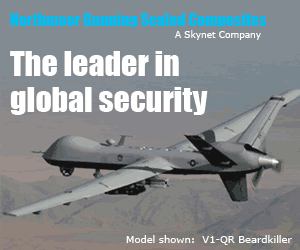by Flint Driscoll on June 3rd, 2011
Can it really be twenty years since I said farewell to arms? The calendar, alas, does not lie. Twenty long years, blowing in the cold, heartless, not-understanding winds of civvy street…
I guess I still have a lot of mental and spiritual baggage from my army service during Desert Storm. The Flint Driscoll who emerged from the VA hospital, still bruised by the accidental beating he received in a darkened store-room, was not the same naive and idealistic young reserve lieutentant who had landed in Ramstein Air Base only two months before. War made a man of me, but in ways that have scarred me until this very day. I still find it very difficult to talk about those times, apart those four novels I wrote, and the articles for The National Interest, and the biopic feature pitch that is currently still in Hallmark’s court.
If you weren’t there, you wouldn’t understand.
Now, though, after twenty long years, surely the time has come to purge myself of the psychic pain, and I fear that mere prose will not suffice. Only verse – blank or heroic – will bear the dreadful burden of my suffering, the profundity of my insights, the zen-like comprehension of the ying and yang of cruelty and kindness, life and death, loneliness and brotherhood, war and peace. I envisage a major and troubling retro-modernist verse cycle, analogous to Eliot’s The Waste Land, but without all the faggoty footnotes he added to explain the meaning. You wimped out, Eliot. Have the courage of your convictions. Besides, the kind of people who read poetry are happy when they don’t really get it.
It could take me a week, perhaps two, to knock-up an Eliot/Pound-type epic, so in the meantime I’ll leave you with this. Okay, I didn’t write it myself, but I still can’t read it without crying.
|
by anonymous
I am Quartermaster
My story is enfolded in the history of this nation.
Sustainer of Armies…
My forges burned at Valley Forge.
Down frozen, rutted roads my oxen hauled
the meager foods a bankrupt Congress sent me…
Scant rations for the cold and starving troops,
Gunpowder, salt, and lead.
In 1812 we sailed to war in ships my boatwrights built.
I fought beside you in the deserts of our great Southwest.
My pack mules perished seeking water holes,
And I went on with camels.
I gave flags to serve.
The medals and crest you wear are my design.
Since 1862, I have sought our fallen brothers
from Private to President.
In war or peace I bring them home
And lay them gently down in fields of honor.
Provisioner, transporter.
In 1898 I took you to Havana Harbor and the Philippines.
I brought you tents, your khaki cloth for uniforms.
When yellow fever struck, I brought the mattresses you lay upon.
In 1918, soldier… like you.
Pearl harbor, too. Mine was the first blood spilled that day.
I jumped in darkness into Normandy, D-Day plus 1.
Bataan, North Africa, Sicily. I was there.
The ‘chutes that filled the gray Korean skies were mine;
I lead the endless trains across the beach in Vietnam.
By air and sea I supported the fight for Grenada.
Helicopters above the jungles of Panama carried my supplies.
In Desert Storm, I was there when we crossed the border into
Iraq…sustaining combat and paying the ultimate sacrifice as we liberated Kuwait.
I AM QUARTERMASTER.
I can shape the course of combat,
Change the outcome of battle.
Look to me: Sustainer of Armies…Since 1775.
I AM QUARTERMASTER. I AM PROUD. |
Posted in Meditations on green
1 Comment
by Flint Driscoll on June 14th, 2011
Until now I have resisted the mounting pressure for me to comment on the situation in Syria. I must admit that I have struggled to find a way to explain this highly complex problem in terms that you, the layman (and who knows, perhaps laylady) might understand. It is not sufficient to say, as we do of our Facebook relationship statii, that “it’s complicated”.
Fortunately, I have come up with an analogy that will serve to expose the anatomy of the crisis in terms that even a simpleton could not fail to understand.
I speak of the analogy of Schrödinger’s Cat. As everyone knows, Schrödinger was a physicist who dabbled on the side in veterinary science. He found that by locking a cat into a sealed, airless box for a defined period of time, he was able to induce in it a state of profound coma. The cat, in other words, was at once dead and alive, occupying two contradictory states at the same time. Even more remarkably, Schrödinger was able to demonstrate that the mere act of observing the cat’s state had the effect of changing that state. If he opened the box to observe the cat after, say, one minute, he found it to be in a highly agitated state. If he waited ten minutes, on the other hand, he would observe the cat to occupy a state of absolute inertia.
I simplify, of course, for your benefit: there is a lot of highly complex mathematics involved that need not trouble you. My point is this: 1. It is possible for a person to be two entirely contradictory things at the same time. And 2. It just depends how you look at things.
The person in question today is President Bashar al-Assad, Syria’s youthful dictator. I have never been to Syria – no doubt I am on a watch list at the airport, and then there’s the whole kidnapping risk, and the dangers of drinking non-domestic bottled water – but I have been blogging about the middle east for many years now, and few people outside the Center for Security Policy can have such a deep understanding and compassionate concern for the human tragedy now unfolding there.

Bashar al-Assad: Cat in a hot tin box
Because President Bashar al-Assad is a deeply tragic, conflicted figure. On the one hand he – like his father Hafez before him – is the leader of a corrupt and brutal minority regime, dependent for its survival on malign foreign interlopers: first, the Soviet empire; now, the fanatical, nuclear-armed ayatollahs of Iran, and their proxy Shia henchmen in Lebanon’s genocidal Hizbollah terror group. Together, they pose an existential threat to the very existence of America’s closest and dearest ally, plucky little Israel, which could at any moment be overrun by Syria’s massed tank legions, or incinerated by an Iranian first strike. Damascus also gives shelter to the exiled leadership of the Palestinian terror group Hamas, which continues to resist Israeli rule despite all that Israel has done for its Arab immigrant population. Which is just plain nasty, if you ask me.
But seen another way, Bashar is a decent, reluctant leader, summoned to the throne only after his elder brother died in a car crash. A self-declared reformist, he has, like his father, proved very sporting down the years about Israel’s rightful annexation of the Golan Heights, dashingly seized from Syria in a defensive proactive surprise attack in 1967. While he still complains about the Golan in public, Assad has in practice let things slide. Moreover, as a minority Alawite, allied to Syria’s other minorities – Christians, Shiites, Alevis, whatever you’re having yourself – Assad is a stout bulwark in defense of religious tolerance; a stern but fair ruler who resists the machinations of Syria’s lumpen Sunni Muslim majority.
Without Assad, our strategic position in the region would be gravely weakened: the Sunnis must never be allowed to take over in Syria, as they have already done, disastrously, in Turkey. Israel is, and must remain, the only democracy in the middle east. Because democracies are hard for us to bomb.
So what can we in the US do to resolve this contradiction? Do we back Assad, or bomb him? The answer, naturally, is to do both. I haven’t quite worked out the details yet, but I know from my extensive on-line research – I hate that term, “drone porn” – that we in the US (and Israel, of course) now have weapons so precise that we can use them to micromanage any local or global problem.
I shall tweet my friend Henry, who does publicity work for the Skynet Corporation, to dig up some more specifics on the latest drone warfare capability upgrades, but in the meantime let me sketch out a possible scenario: Bashar al-Assad throws open the French windows of his presidential palace, high on a hillside overlooking Damascus, and squints westwards towards Israel’s Golan Heights. He sets out across the lawn towards them, and instantly a small, non-explosive kinetic anti-tank missile, fired from a circling drone, crashes into the ground at his feet. Thinking better of his chosen path, he turns to the east. Wrong again: thither lies Iran. Another missile firmly but unmistakably interdicts his path. Where can he go next? South, to invade loyal little moderate Jordan, as his father once tried? Wham! Another missile at his feet. Dance, Bashar, dance! It won’t take long before he gets the message, and knuckles down to fighting Islamic extremism for us, in Jisr al-Shughour, and Deraa, and Homs.
Posted in Drones, International
1 Comment









